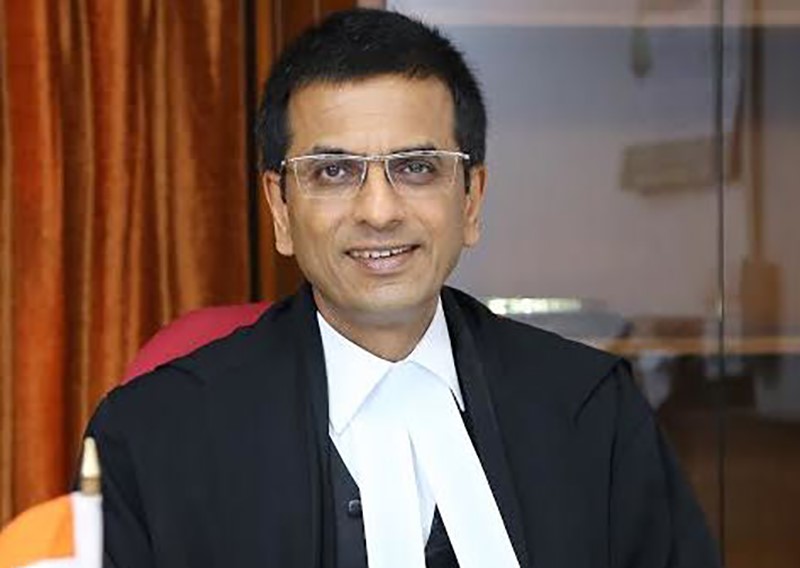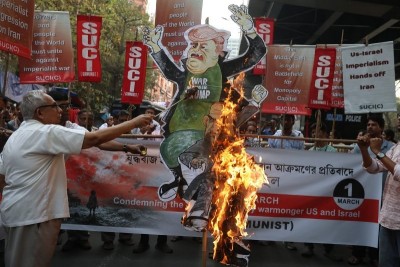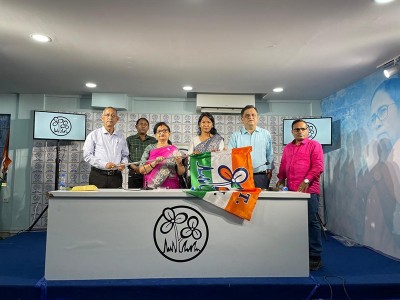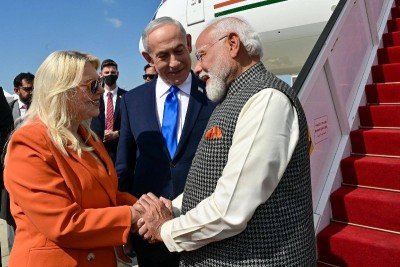
India's GST is a classical example of cooperative federalism, says CJI D Y Chandrachud
Mumbai: Chief Justice of India D Y Chandrachud described the introduction of the Goods and Services Tax (GST) in India as a “classical example of cooperative federalism,” during a lecture on Saturday, media reports said.
Speaking on "Understanding Federalism and Its Potential" at the inaugural lecture series organized by the Marathi daily 'Loksatta', Chandrachud noted that federalism in India is complex and multifaceted, rather than monolithic, reported news agency PTI.
Explaining cooperative federalism, the CJI noted it as a system where the Centre and states work collaboratively to “iron out differences to achieve the common goal of development.”
He further said the dialogue between the Union and state governments should be seen on “two ends of the spectrum,” with collaborative discussions at one end, fostered by cooperative federalism, and “interstitial contestation” between states and the Union at the other.
“Both forms of dialogue are equally important for federalism and for our nation to flourish, and what better example (one can think of) than the introduction of the GST,” he added.
Chandrachud pointed out that since the economic reforms of 1990, which elevated the economy in political discourse, the Constitutional amendment embodying GST marked “a classical example of collaborative, cooperative federalism.”
The CJI highlighted the courts' significant role in upholding the principles of federalism in India.
“The courts have been at the forefront of this development, bringing out the nuances of the doctrine to protect the interests of the states in terms of identity and efficiency,” he said. In recent years, courts have developed “a robust jurisprudential framework on federalism to ensure that the state's rights are protected, identity of various communities is fostered and the value of representation is promoted,” he added.
Reflecting on federalism’s evolution, Chief Justice Chandrachud noted, “The concept of federalism that was envisaged by our founding fathers and mothers has not remained static, it's a concept which has evolved keeping in view the realities of the evolution, the maturity and strength of our political system to incorporate more autonomy for the state.”
He emphasized the transformative nature of the Indian Constitution, noting its adaptability to modern challenges such as climate change, artificial intelligence, data privacy, and cybercrime that transcend traditional federal boundaries.
“These new challenges ill-fit the conventional modes of union and state subjects.....some Indian states are severely impacted by the perils of climate change, while some may be more prone to cyber attacks due to the greater volume of virtual transactions,” he said, according to the report.
Looking ahead, Chandrachud suggested that federalism should be evaluated on how well it supports democracy and constitutional ideals.
“If federalism in the years gone by was adjusting to the political realities of the country in terms of legislative powers, in the years to come it should also be evaluated based on its ability to foster democracy and constitutional ideals of equality, liberty, dignity and fraternity,” he concluded, the report added.
Support Our Journalism
We cannot do without you.. your contribution supports unbiased journalism
IBNS is not driven by any ism- not wokeism, not racism, not skewed secularism, not hyper right-wing or left liberal ideals, nor by any hardline religious beliefs or hyper nationalism. We want to serve you good old objective news, as they are. We do not judge or preach. We let people decide for themselves. We only try to present factual and well-sourced news.







